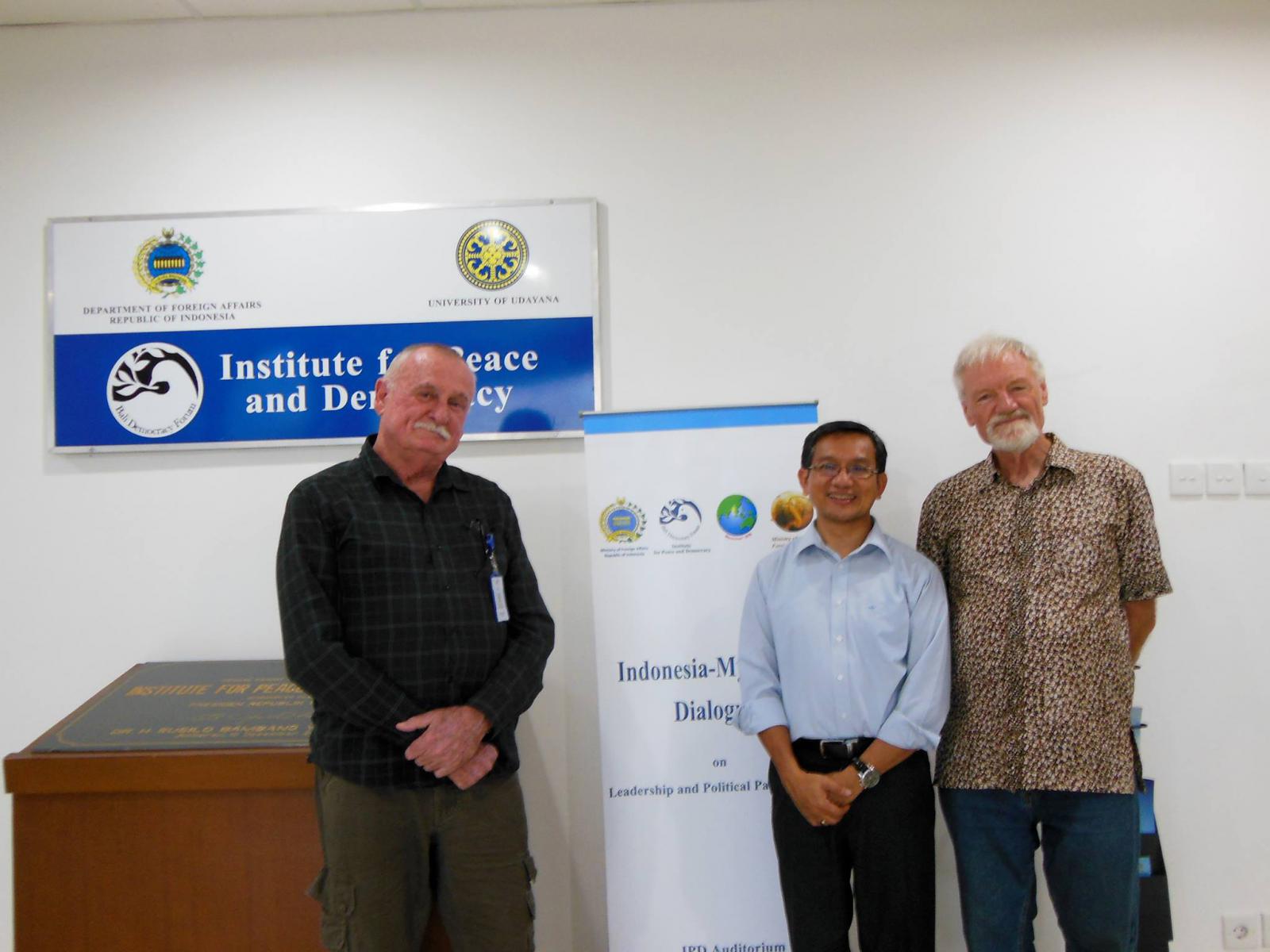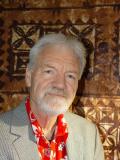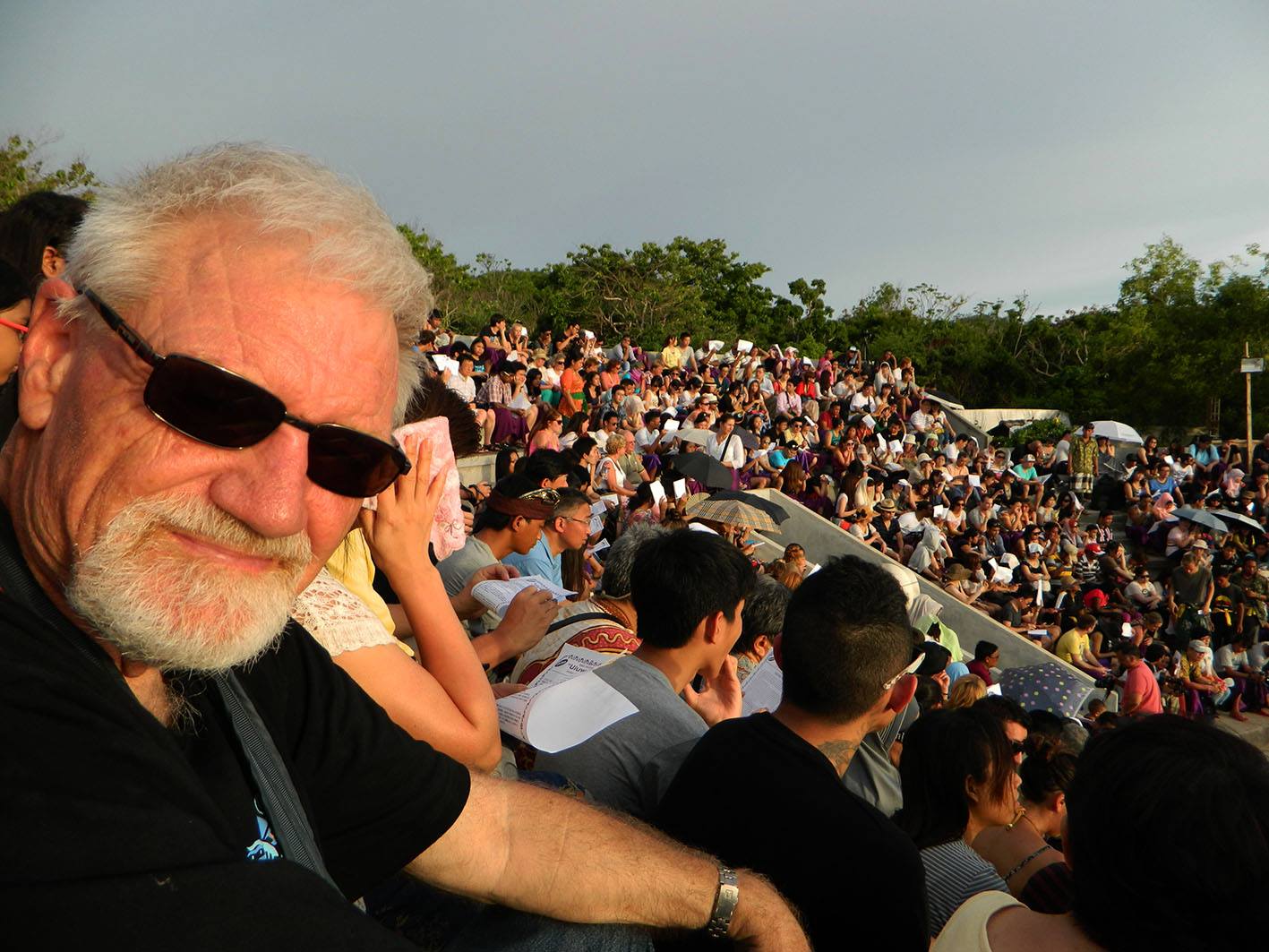
What do Pacific human rights in Yogyakarta, climate change media strategies in Fiji, media freedom in Stockholm, digital free speech in Paris, development communication in Timor-Leste, volcanoes in Indonesia and a new book for the Asia-Pacific region have in common?
They’re all different sides of the coin for my just-completed sabbatical.
I began the semester-long sabbatical in July when I presented a paper on Pacific media freedom and human rights at the Asian Media Information and Communication Centre (AMIC) conference in Yogyakarta in central Indonesia.
Barely had that ended - and I managed to squeeze a visit to the Buddhist temple Borobudur on the slopes of the Mount Merapi volcano – when I was winging my way across the Pacific to an international conference on “failed states” at the University of the South Pacific in Suva.
Then back to New Zealand, where I completed my forthcoming 10th book, Don’t Spoil My Beautiful Face: Mayhem, Media and Human Rights in the Pacific, in September ready for the publishers.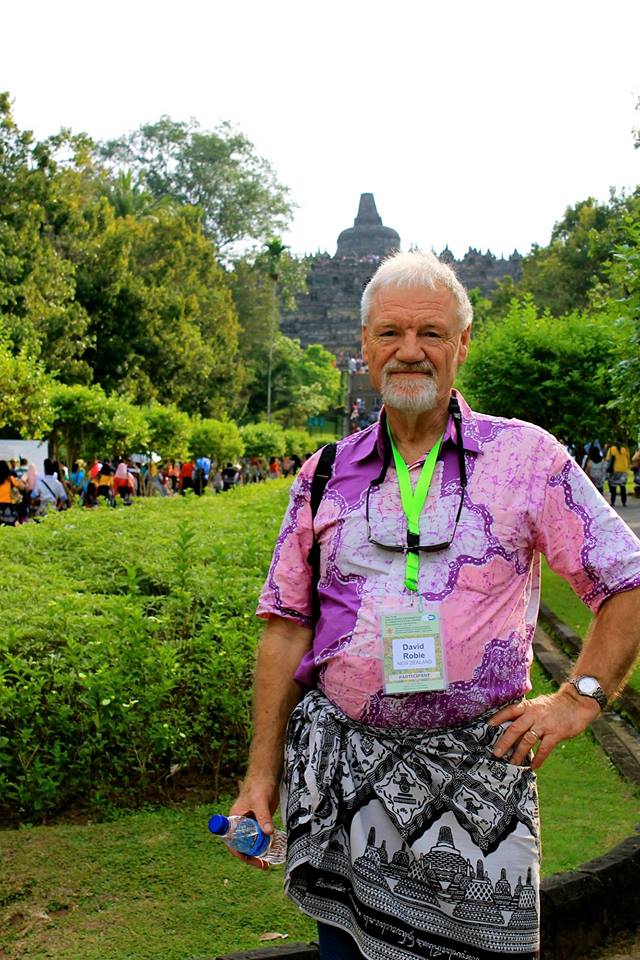 And I met the deadline in spite of the shock of losing my father, Jim, to cancer at the age of 92.
And I met the deadline in spite of the shock of losing my father, Jim, to cancer at the age of 92.
I feel like I have been on an astonishing roller-coaster and I have just had to keep up with the flow.
October was a month of visiting media groups and guest lecturing related to my postgraduate Asia-Pacific Journalism course at AUT, including a week at the Danish School of Media and Journalism in Aarhus, Denmark, and a day of back-to-back lectures at Stockholm University's Institute of Media and Journalism on press freedom, climate change and global media.
This was followed by a visit to Paris, where I had a meeting with the Asia-Pacific desk director Benjamin Ismail and other colleagues at the Reporters Sans Frontières (RSF) media freedom organisation near the Place de la Bourse.
Back to New Zealand again, and this time off to Timor-Leste for three weeks to work with the influential non-government organisation La’o Hamutuk (Timor-Leste Institute for Development and Analysis).
As my funds were getting very low by then, I managed to stay – thanks to La’o Hamutuk’s Charles Scheiner - in a comfortable whare beside his house next to a goat-grazing paddock and close to the beach in the Dili suburb of Comoro. What a view of Atauro Island!
It was a very peaceful time - with a lot of travel on the back of a motorbike - except for when a murder happened in my neighbourhood early one Sunday morning. It was a dispute between rival gangs over money.
A squad of about 30 armed police set up camp for the next few days.
During the Timor-Leste stint, I travelled on a three-day visit to the remote south-east village of Kraras - the so-called "village of widows" where more than 180 men were killed in one of a series of massacres by Indonesian troops in September 1983.
This was the venue of the 38th anniversary of Timor-Leste independence on 28 November 1975 and the 30th anniversary of the Kraras massacres.
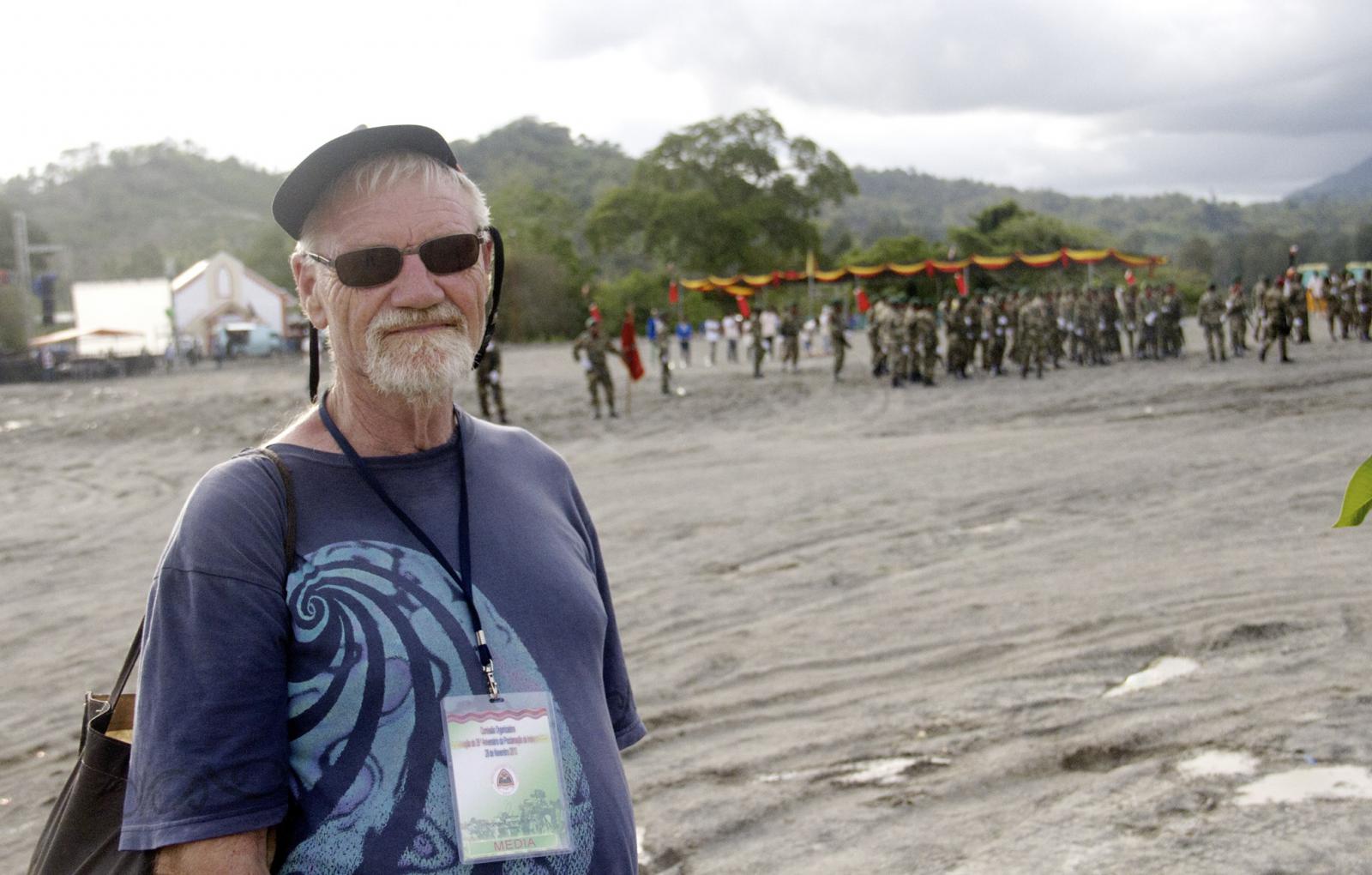 The event was marked by more than 2000 people with a military parade on a muddy ground next to the "Garden of Heroes". Spectacular but very martial.
The event was marked by more than 2000 people with a military parade on a muddy ground next to the "Garden of Heroes". Spectacular but very martial.
To actually get to Kraras, I needed to catch an overcrowded bus to the second-largest town of Baucau, jostling with passengers and babies - including four men hanging to the sun-baked the roof and eight clinging to the open doors - and sacks of rice and chickens.
I then teamed up with film-maker Max Stahl and his crew who filmed the historic event.
At La'o Hamutuk, I ran some training workshops and a public lecture on media freedom, and filed some journalism pieces after interviewing local editors as well as my research outputs.
I also participated in several public seminars and workshops providing valuable analysis, background and discussion on the "resource curse" risks of Timor-Leste's economy, which is almost totally reliant on the oil and gas revenues from the Timor Sea. The country's petro revenues are now expected to run out in six years with little sign of economic diversification.
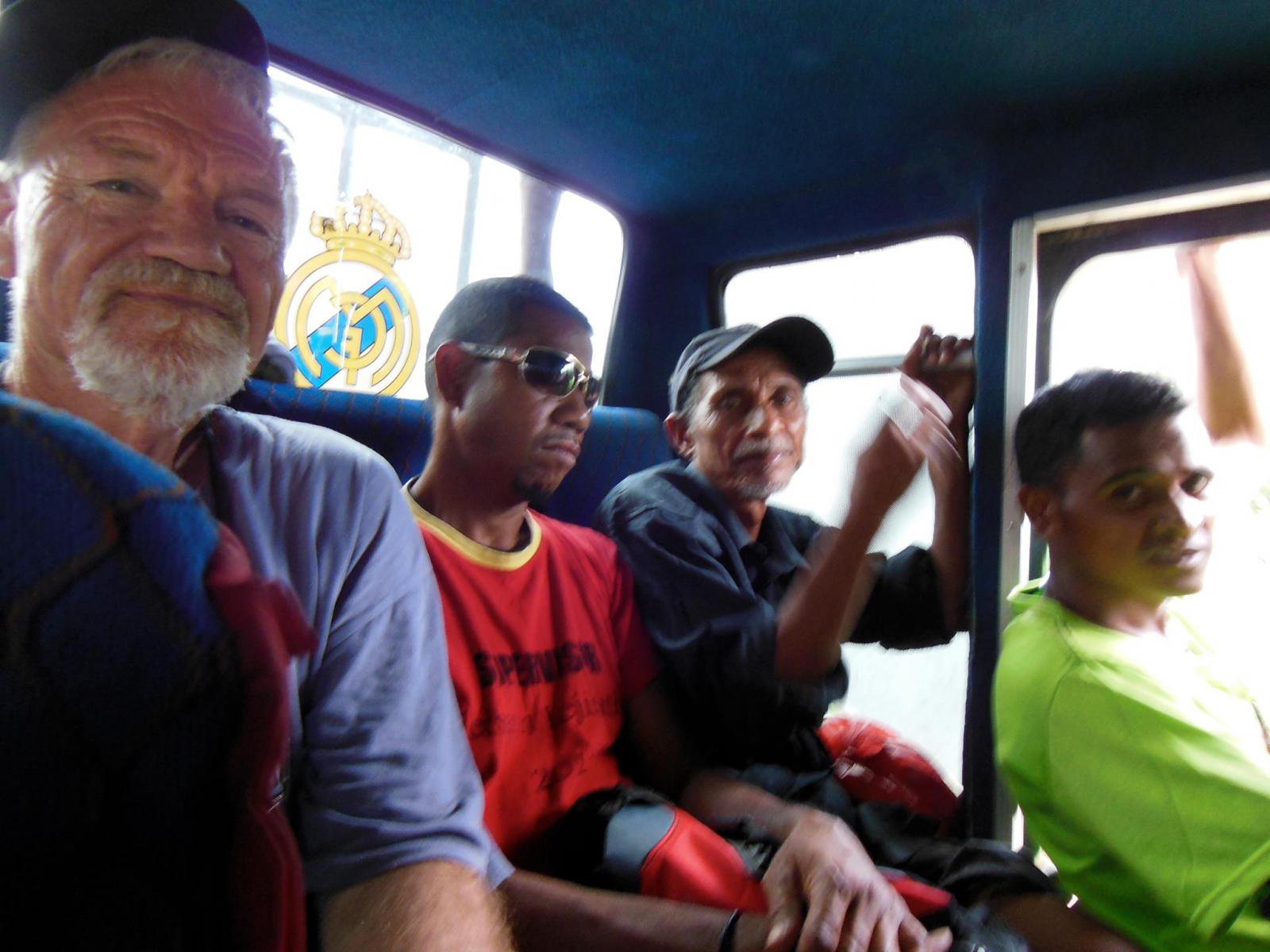 Finally, the sabbatical ended in a meeting with the Centre for Peace and Democracy team in Bali, including director Dr Ketut Erawan and former PNG Post-Courier publisher and managing director Bob Howarth.
Finally, the sabbatical ended in a meeting with the Centre for Peace and Democracy team in Bali, including director Dr Ketut Erawan and former PNG Post-Courier publisher and managing director Bob Howarth.
The Bali visit also included going to Mount Batur volcano, an active peak that erupted in 1917 and killed more than 1000 people.
Watch for articles on my blog Cafe Pacific
Timor-Leste leg of the sabbatical
European leg of the sabbatical
